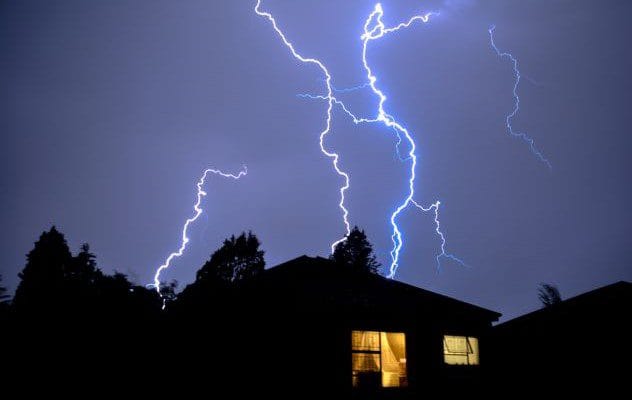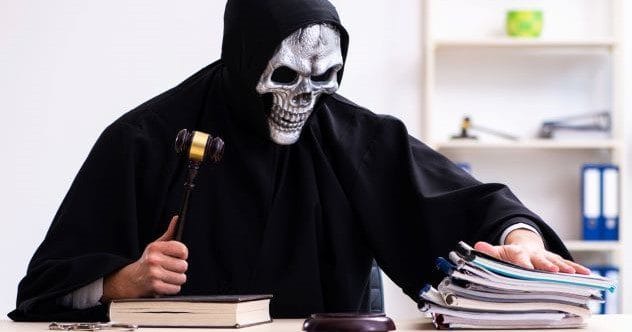Supernatural events, by their very definition, exist outside our everyday reality. Belief varies widely; while some are convinced, others remain skeptical. Typically, debates about ghosts and spirits occur casually, but occasionally, they escalate into serious legal matters. Throughout history, numerous court cases have grappled with issues involving ghosts, deities, and other questionable entities.
Here are ten lawsuits where the supernatural world was surprisingly put on trial.
The Ghost Writer
Francisco Cândido Xavier, widely known as Chico Xavier, was a prolific Brazilian author in the 20th century. Credited with over 450 books, his writing process was unique. Xavier claimed that spirits channeled all his texts through a method called psychography. A believer in spiritism, Xavier maintained that mediums like himself could communicate with spirits, including the souls of the deceased. Many of his books were purportedly written by dead authors.
This raises several ethical and legal questions. The most pressing, according to the family of the late poet Humberto de Campo, was determining who should receive royalties from these posthumous works. Xavier asserted that de Campo wrote them through him, yet Xavier collected the earnings. De Campo’s family believed the money should belong to them—or that Xavier should admit to fabricating the works—and thus, they sued.
The case went to trial in 1944, with the family demanding that everyone involved, including Humberto de Campo’s spirit, be compelled to attend. However, the judge dismissed the case, arguing that deceased individuals possess no civil rights, and a family can only claim ownership of works created by an author before their death.
In 1981, over two million signatures were gathered, petitioning for Xavier to receive the Nobel Peace Prize. He was never awarded it.
Betty Penrose v. God

When misfortune strikes, it’s natural to rail against fate or divine powers. While most people move on, some seek someone to hold accountable. Americans, known for their litigiousness, might not be too surprised that God has been summoned to court in the United States.
When lightning struck and destroyed Betty Penrose’s Arizona home, she believed there was only one entity to blame. With her lawyer’s assistance, a case was filed in California in 1969 against God. The suit sought $100,000 in damages, alleging that God controlled the “operation of the universe, including the weather in and upon the State of Arizona.”
The case could be heard in California because a property had been legally transferred to God’s ownership. The reasoning was that if God could own property, He could be sued. However, this property transfer was deemed invalid, though Penrose’s case had already been adjudicated. She won, yet she never collected the judgment.
Ernie Chambers v. God
As the overseer of the universe, ultimate responsibility rests with God, making Him a frequent defendant. In 2007, Ernie Chambers, a Nebraska state senator, joined the list of those attempting to sue God.
Chambers sought a judicial order compelling God to cease “fearsome floods, egregious earthquakes, horrendous hurricanes, terrifying tornadoes, pestilential plagues, ferocious famines, devastating droughts, genocidal wars, birth defects, and the like.” God was suable in Nebraska due to His omnipresence and the “putative” agents (priests) operating in His name. Given God’s omniscience, He couldn’t claim ignorance of the harm caused.
The case went before a judge but was dismissed because God could not be contacted or summoned. Chambers, however, viewed this as a victory. His aim wasn’t truly to sue God but to emphasize that every case deserves consideration, rather than dismissal as frivolous. A previous rape case had been dismissed similarly.
Pavel Mircea

Does baptism create a binding legal contract with God? This was the question in a Romanian prisoner’s lawsuit. Pavel Mircea, imprisoned for 20 years for murder, came to believe Satan caused his crimes. Why hadn’t God protected him from Satan’s influence?
Mircea argued that God willingly accepted his prayers but failed to provide the promised benefits of Christianity, thus breaching their contract. He also sued the Orthodox Church as God’s representative.
Mircea’s efforts were unsuccessful. The case was dismissed because God isn’t a Romanian citizen or company under Romania’s jurisdiction.
Stambovsky v. Ackley
Helen Ackley claimed years of poltergeist activity in her New York home and discussed her experiences in various press articles, giving her home a haunted reputation. When she sold the house to Jeffrey Stambovsky, she allegedly informed him about the hauntings, to which he replied, “We’ll have to call in the Ghostbusters.” The contract was then signed.
Stambovsky quickly had second thoughts, claiming he’d only just learned of the hauntings and wanting to back out of the sale. He took Ackley and her real estate agent to court, alleging fraudulent misrepresentation of the property.
The initial trial was dismissed, but Stambovsky appealed. The court ruled that “as a matter of law, the house is haunted.” This wasn’t because they confirmed the existence of ghosts, but because the house’s reputation affected its market value. They also found buyers must inspect a property before purchase—but allowed contract breakage since ghosts are invisible.
Burchill v. Hermameyer

In 1919, Mrs. Burchill informed Mr. Hermameyer about an oil fortune on her property, inviting him to invest $10,000 in her oil company for a share. He agreed, investing a large sum based on Mrs. Burchill’s claim from a medium who learned about the oil from a spirit.
Hermameyer sued Burchill to recover his money when the ghostly oil prospector’s information proved false. No oil was found, and Hermameyer argued he was in “an abnormal and irrational condition” when he believed the spirit.
The court disagreed, acknowledging the possibility of spiritual communication but classifying it as “purely speculative” and not legally provable. Since he acted on his belief in ghosts, the investment wasn’t based on fraud.
McClary v. Stull

In 1895, the Nebraska Supreme Court addressed a will influenced by ghosts. Elizabeth Handley, a spiritualist widow, consulted spirits, including her deceased husband, using a planchette. Upon her death, her will directed the sale of her estate, with proceeds donated to The Home of the Friendless. Her children contested, arguing the will was made under the spirit of their dead father’s influence.
The court upheld the will. It stated that while law is earthly and doesn’t typically recognize spirit-wills, courts don’t deny spirits’ ability to communicate, provided they don’t unduly influence or prejudice vested rights. As Handley wasn’t insane, she could dispose of her money as she wished.
Edward Stribbling Shue
Only one U.S. case exists where a ghost’s evidence led to a conviction. When Edward Shue’s wife, Zona, was found dead at the bottom of their stairs, he arranged her on the bed and dressed her in a high-necked collar before the doctor arrived. The doctor examined the body but didn’t inspect the neck, which Shue concealed. The death was generally accepted as an accident, but Zona’s mother suspected foul play.
Zona’s ghost visited her mother at night, revealing she had been strangled and her neck broken at “the first joint.” The mother pushed for an investigation, and Zona’s body was exhumed, confirming that she had been strangled and her neck broken as the ghost described.
Edward Shue was charged with murder. To discredit the ghostly testimony, Zona’s mother testified about the apparition. The jury found her convincing and convicted Shue, sentencing him to life in prison.
Hammersmith Ghost Murder
Today, ghost hunters typically use video recorders. However, in 1804, reports of a spirit attacking people in London’s Hammersmith area were widespread. The ghost, a tall man in white, was thought to be a restless soul. Groups searched for the phantom.
Francis Smith encountered a man in white one night, believing he had found the ghost. He yelled and shot, hitting the man in the jaw, who fell. The “ghost” was Thomas Millwood, a bricklayer in work attire, who died instantly.
Smith was tried for murder and found guilty, though his death sentence was reduced to a year of hard labor. English law set a precedent that believing someone is a ghost isn’t justification for killing them.
Gerald Mayo v. Satan and His Staff
Suing the Devil is risky, considering his potential access to history’s greatest lawyers. Yet, in 1971, prisoner Gerald Mayo sued Beelzebub.
Mayo’s lawsuit claimed the Devil was behind all his problems, causing misery, unwarranted threats, deliberate obstacles, and his downfall, thereby denying Mayo his constitutional rights.
The judge denied the motion for several reasons. There was no proof the Devil resided in the district, questioning the court’s jurisdiction. Also, delivering a summons to Satan posed a logistical challenge, as few would venture to Hell to serve papers.
These cases illustrate the bizarre intersections between law and the supernatural, reflecting societal beliefs and the legal system’s attempts to address the unexplainable.
Which of these supernatural trials did you find most intriguing? Leave your comment below!










